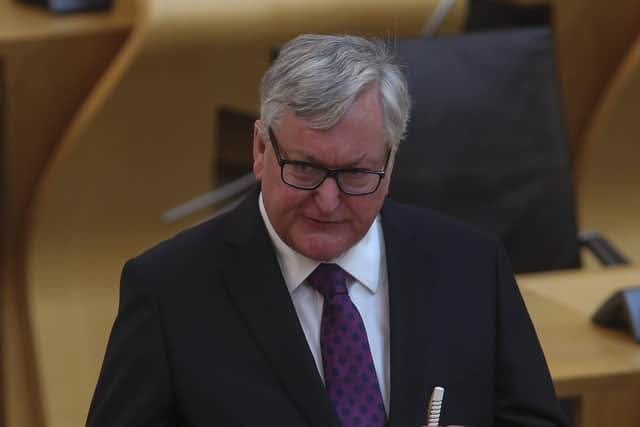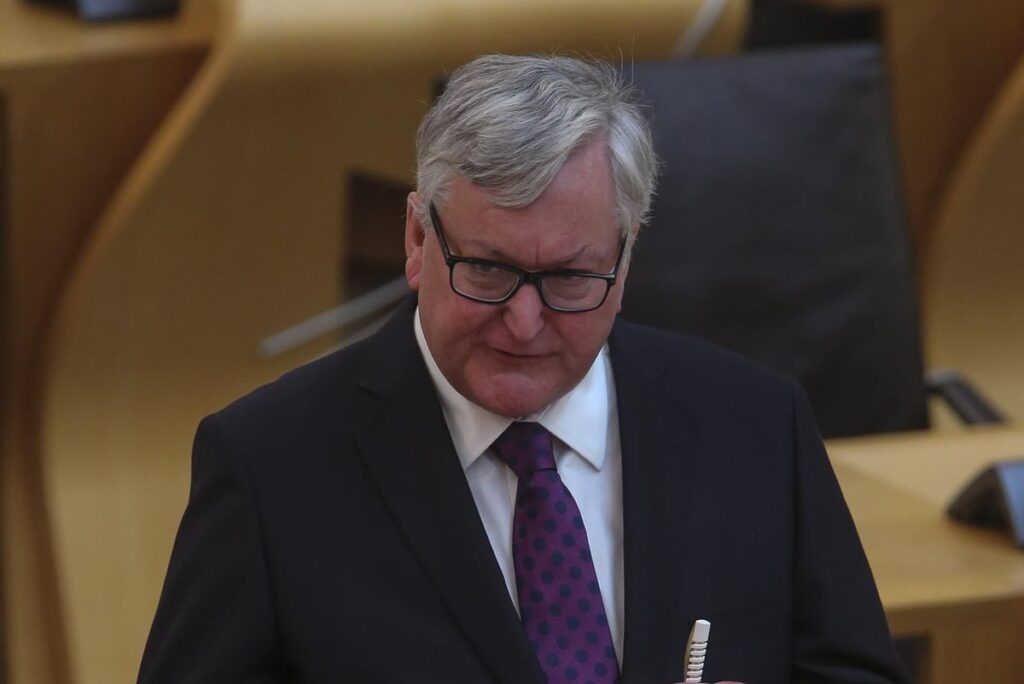Former energy minister Fergus Ewing is among a group of MSPs who challenged ministers over a “lack of overall ambition” for solar power in Scotland.

Former energy minister Fergus Ewing is among a group of MSPs who challenged ministers over a “lack of overall ambition” for solar power in Scotland.
The former SNP cabinet secretary joined others from across Holyrood to urge Net Zero Secretary Michael Matheson to back a target of more than tenfold expansion of solar capacity by the end of this decade .
The group of MSPs said such a move would support thousands of jobs and added that retrofitting homes with solar panels would help households save on their energy bills ” up to £1,500 or more” at a time when costs are rising.
MSPs, including Conservative environment spokesman Brian Whittle and Labor energy spokesman Colin Smyth, urged the Scottish Government to “follow up the political will with concrete action” on solar energy.
In a letter to Mr Matheson, they urged ministers to set a target with “ambition to deploy” to generate four to six gigawatts (GW) of electricity from solar power by 2030.
The group, which also includes Thomas McMillan, chairman of Solar Energy Scotland, said: “The Scottish solar industry is ready to help deliver a fair energy transition, but the main barriers to policy remains.
“This needs to be removed to meet Scotland’s climate targets and alleviate fuel poverty. First of all is the lack of overall ambition for solar deployment in Scotland.”
Setting such a target of four to six GW could “support around 9,000 Scottish jobs by 2030”, the politicians said in their letter, including solar installers, site planners, manufacturing technicians and others yet.
The group of MSPs – which also includes the SNP’s Paul McLennan, a co-convener of Holyrood’s cross-party group on renewable energy and energy efficiency, as well as Green MSPs Mark Ruskell and Liam McArthur and Willie Rennie from the Scottish Liberal Democrats – demands the planned Scottish energy strategy “must include an ambition to deploy solar energy of four to six GW by 2030”.
They told Mr Matheson: “As you will know, millions of people and businesses are worried about how they will pay their energy bills, which are kept high by our reliance on fossil fuels.
“We all agree that solar energy has a greater role to play in reducing running costs for households and businesses, and we believe that more can be done to support consumers and businesses to reduce bills and act on climate change.”
Solar Energy Scotland chairman Mr McMillan, meanwhile, said that a target of four to six GW from solar power by 2030 would be “in line with the Scottish Government’s current targets for onshore and offshore air”.
He added: “As a signal of intent, it will also encourage investment in the developing sector – and meeting the target will be an instrumental tool not only to meet targets for reducing climate emissions, but to will also help alleviate fuel poverty and reduce the cost of running a business.”
A Scottish Government spokesperson said: “The Scottish Government recognizes the importance of solar power in contributing to our net zero travel and we remain committed to continuing to work with the solar sector to provide a supportive framework of policy to help it continue to grow and deploy.
“We have been working closely with industry in recent months to co-design our draft solar vision which will be published for consultation in our Energy Strategy and Just Transition Plan.”
